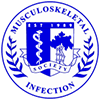Authors: Camelia E. Marculescu, MD*, Sangita Dash, MD, J. Robert Cantey, MD, Cassandra D. Salgado, MD, MS
Title: Higher Risk of Treatment Failure (TF) Associated with Methicillin-Resistance in Staphylococcus Aureus PJI
Addresses: Medical University of South Carolina, Division of Infectious Disease, 100 Doughty Street, BA/IOP South, suite 210, Po Box 250752, Charleston, SC 29425
Purpose: To determine the effect that methicillin-resistance had on the outcome of patients (pts) with S. aureus prosthetic joint infections (PJI).
Methods: Records of pts with S. aureus PJI of a THA or TKA between 1/98-12/04 were reviewed. Characteristics and outcomes of pts with PJI due to methicillin-sensitive S aureus (MSSA) were compared to those with PJI due to methicillin-resistant S. aureus (MRSA). Proportions were compared using X2 or Fisher's exact test. Continuous variables were compared with the Wilcoxon rank sum test. The definition of TF was based on clinical, microbiological, or histopathological criteria. The association between TF and PJI due to MRSA, joint location (hip vs. knee), and removal of joint hardware were examined using a Cox proportional hazard model. Statistical significance was defined as a p-value & 0.05.
Results: 137 PJI occurred over the study period, 45 (32.8 %) of these were due to S. aureus and 12 (8.8%) were due to MRSA. MSSA and MRSA PJI pts did not differ in age, gender, number or types of co-morbid conditions, joint age at time of diagnosis, symptom duration prior to diagnosis, or number of prior surgical procedures performed. Compared to MSSA PJI pts, those with MRSA PJI had a significantly longer hospital duration (median 22 vs. 10.5 days, p=0.006), however, number of hospitalizations, number of post-surgical medical complications, or duration of antibiotic therapy was not different between the groups. The overall TF rate was 37.8%. Univariate analysis identified MRSA as a significant risk for TF (HR=3.52, 95%CI: 1.25-9.86). TKA PJI was also associated with an increased risk of TF (compared to THA PJI) and removal of joint hardware was associated with reduced risk of TF (compared to retention of joint hardware), however, these did not reach statistical significance (HR=1.63, 95%CI: 0.60-4.42, and HR=0.42, 95%CI: 0.19-1.31, respectively). In multivariable analysis, controlling for joint location, and removal of joint hardware, MRSA was again associated with a significantly higher risk of TF (compared to MSSA
Discussion: This study suggests that among pts with S. aureus PJI, methicillin-resistance was associated with significantly longer hospital duration and significantly higher risk of TF (when controlling for joint location and removal of hardware). Larger, prospective studies are needed to confirm these findings.

